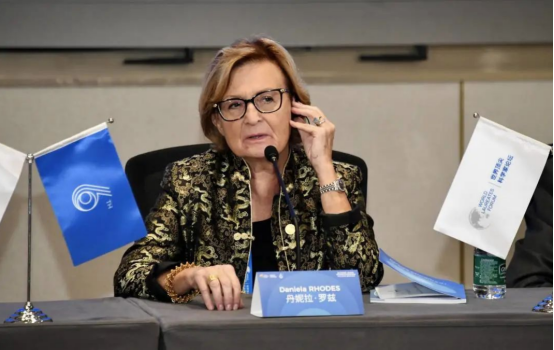Please click the button below to go to our email login page
|
Daniela Rhodes, who studied for her doctorate after working for 8 years, becomes a brilliant scientist In the opening ceremony of 2023 World Laureates Forum and the award
ceremony of 2023 World Laureates Association (WLA) Prize, Randy Schekman, Chair
of the WLA Prize Selection Committee in “Life Science or Medicine”, announced
three structural biologists sharing the 2023 WLA Prize in Life Science or
Medicine, one of which is Daniela Rhodes, Emeritus Group leader at the MRC
Laboratory of Molecular Biology in Cambridge.
According to her acceptance speech, for elucidating the structure of the nucleosome at the atomic level, they started a long research journey as early as the mid-1970s. Daniela Rhodes was born in 1946 in Italy. After obtaining bachelor’s degree in chemical engineering in Sweden, she joined the MRC Laboratory of Molecular Biology in Cambridge, UK, and subsequently went on to do a Ph.D. with Sir Aaron Klug, a Nobel Prize winner. Rhodes, then graduate student of research group, successfully obtained the first natural crystals of nucleosomes at a low-resolution structure of about 20Å. She also developed methods for nucleosome reconstitution in vitro, namely reconstitution from the histone octamer and DNA of defined length. In 1984, Rhodes and another laureate Prof. Timothy J. Richmond jointly obtained 7Å resolution structure of the crystals of nucleosomes, through which the fundamental architecture of nucleosomes was clearly observed, where nucleic histone molecules intertwine and DNA double helix wraps around the histone octamer core. For Rhodes, her professional growth has been interrupted. She worked as an engineer for 8 years, and after giving birth to a son, she embarked on a PhD in UK. “It was a grueling time, because sometimes I needed to go home to make dinner and then go back to the lab to continue work”, said Rhodes. But such tough life brings her a rich harvest. “After having a child, I clearly figured out how to better spend time on the most important thing”, said Rhodes. Meanwhile, this also made her more clear about what kind of work she wanted to do. When asked what she thinks of scientists, Rhodes said honestly but with satisfaction: “To be a scientist is extremely exciting and is a great privilege, because you can work for interests instead of being told you have to do the job. So I think in a way, being a scientist is like being an artist and you should have fertile imagination.” “In science, you must try to address a tricky problem, but in art, you can directly create a painting or other artistic works. But I think to conduct the most outstanding scientific research, researchers must become an artist.” Nanpeng Shen, founding and managing partner of Sequoia China who funds WLA prize permanently, has put forwards his expectation towards this prize: it is expected that the achievements awarded are sufficiently cutting-edge, basic and authoritative and become an important direction and long-term driving force to lead the development of global science and technology; the award is undoubtedly a reward for past achievements and the fruit of long-term research by scientists; in his view, the award is more of a cultivation of future seeds and a scientist’s vision of human science and technology. |

